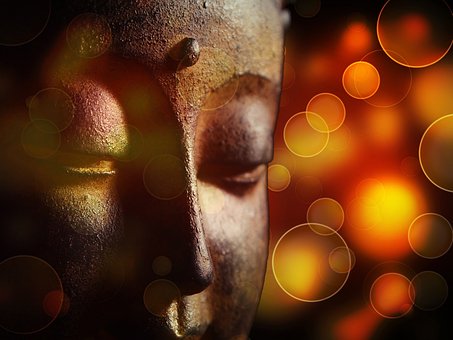Nowadays, many lay people proclaim themselves to be students of the Buddha. But what of the Buddha have they learned? Most lay practitioners, ranging from intellectuals and business people down to the old ladies in the villages, practice the Dharma as a way of cultivating worldly blessings. Their motivation to practice, take refuge, and undertake the five precepts is to obtain good health, longevity, a smooth career, successful business, and so on for themselves, and a chance to enter a good university or get a promising job for their children. Are they following the way of the Buddha? The Buddha never did any of these. We all know that after the Buddha aroused bodhicitta, he never once sought worldly benefit for himself during the incalculable eons of three asamkhyeya kalpas. This mode of “learning the way of the Buddha” conforms more to learning the Dharma. The meaning of the Sanskrit word dharma encompasses all mundane and supramundane phenomena. In the context of practicing the right Dharma, dharma denotes an ability to deliver sentient beings from all suffering, and can be translated literally as “that which upholds.” It is in accord with the meaning of dharma if people practicing the Vehicle of Human and Celestial Beings enjoy the resulting blessings and take rebirth in the higher realms. Thus, undertaking virtuous deeds for the purpose of obtaining worldly benefits is not considered learning the Buddha’s way but learning the Dharma. Today, many self-proclaimed Buddhists maintain this kind of motivation.
~Depicted from GATEWAY TO THE VAJRAYANA PATH - Vajra Master and Empowerment




